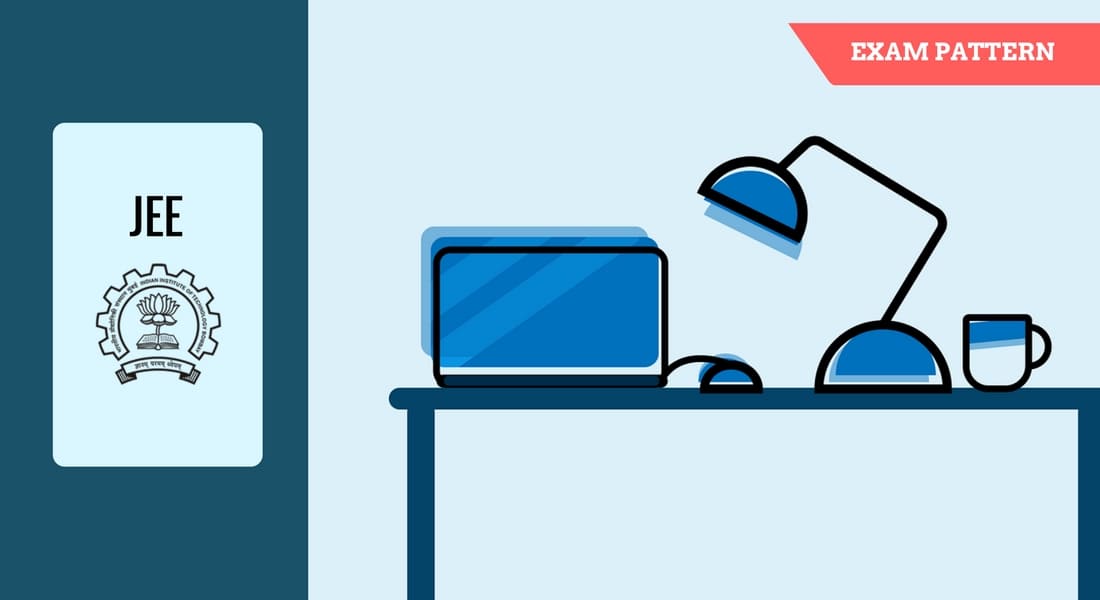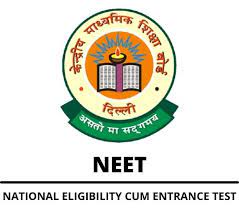Syllabus
The Medical Council of India (MCI) prescribes a syllabus for NEET. It covers topics from Physics, Chemistry, Botany and Zoology from class 11 and 12. Typically, syllabus for NEET is published once a thorough review from inputs of different states on the syllabi is conducted. Syllabi are based on NCERT, CBSE and COBSEW. Check this space for the latest on the syllabus.
Provided below is the subject-wise syllabus for NEET 2023 from classes 11 and 12.
NEET 2023 Physics Syllabus
| Class 11th Syllabus | Class 12th Syllabus |
| Physical world and measurement | Electro statistics |
| Kinematics | Current Electricity |
| Laws of Motion | Magnetic effects of Current and Magnetism |
| Work, Energy, and Power | Electromagnetic induction and alternating currents |
| Motion of systems of particles and rigid body | Electromagnetic waves |
| Gravitation | Optics |
| Properties of Bulk Matter | Dual Nature of Matter and Radiation |
| Thermodynamics | Atoms and Nuclei |
| Behavior of Perfect Gas and Kinetic theory | Electronic Devices |
|
Oscillations and wave |
NEET 2023 Chemistry Syllabus
| Class 11th Syllabus | Class 12th Syllabus |
| Some basic concepts of Chemistry | Solid state |
| Structure of atom | Solutions |
| Classification of Elements and Periodicity in Properties | Electrochemistry |
| Chemical Bonding and Molecular structure | Chemical Kinetics |
| States of Matter: Gases and liquids | Surface Chemistry |
| Thermodynamics | General principles and Processes of Isolation of Elements |
| Equilibrium | P Block elements |
| Redox reactions | D and F block elements |
| Hydrogen | Coordination compounds |
| s-Block elements (Alkali and Alkaline earth metals) | Haloalkanes and Haloarenes |
| Some p-Block elements | Alcohols, Phenols and Ethers |
| Organic Chemistry – Some basic principles and techniques | Aldehydes, Ketones and Carboxylic Acids |
| Hydrocarbons | Organic compounds containing Nitrogen |
| Environmental chemistry | Biomolecules, Polymers and Chemistry in everyday life |
NEET 2023 Biology Syllabus
| Class 11th Syllabus | Class 12th Syllabus |
| Diversity in the Living World | Reproduction |
| Structural Organisation – Plants and Animals | Genetics and Evolution |
| Cell Structure and Function | Biology and Human welfare |
| Plant Physiology | Biotechnology and its applications |
| Human physiology | Ecology and environment |
Reservation Criteria
NEET Reservation Criteria 2023
The following table describes the reservation criteria for different categories. Take a look.
| Groups/Categories | Reservation |
| General Economically Weaker section | 10% |
| Scheduled Tribe | 7.5% |
| Scheduled Caste | 15% |
| Other backward castes | 27% |
| Persons with disabilities | 5% |
Frequently Asked Questions
Q1. Should I take the Coaching for NEET 2023?
Ans. Yes, you should join coaching for NEET 2023. Coaching gives you great exposure to quality teaching, questions, and the tests conducted on the basis of NEET exam pattern. It will help you in staying confident to crack NEET 2023. Also, the coachings are properly experienced ones, thus, encouraging students through proper guidance and techniques to qualify for the examination.
Q2. Can a 12th pass-out candidate appear directly in NEET examination?
Ans. Yes, the students who have just passed out from the 12th standard are eligible to appear in NEET entrance examination. Although, the level of their preparation decides if they want to appear in NEET soon after qualifying 12th standard or they want to take a year drop out to strengthen their preparation.
Q3. In which colleges admission is given to the qualified candidates of the NEET entrance examination?
Ans. The qualified candidates are eligible to get admission in the AIIMS, JIPMER, and various other medical colleges of India.
Q4. How many total questions are there in the NEET examination?
Ans. 200 questions are there in NEET. Candidates will get the internal choice in section B of the paper and they have to attempt only a maximum of 180 questions.
Q5. What are the main subjects focused upon in the NEET examination?
Ans. All the questions are divided into Physics, Chemistry, and Biology in the entire paper.
Q6. What are the maximum marks for NEET 2023?
Ans. 720 marks are the maximum out of which candidates have to score.
Q7. What were the safety provisions provided by the NTA for the NEET examination?
Ans. For maintaining proper social distancing this time the exam centers were increased from 2546 to 3843 and all other safety instruments like sanitizer and masks were made compulsory.
JEE Advance 2017 Syllabus & Brochure

Brochure
JEE Advanced Pattern

JEE Advanced Exam Pattern 2017
SCHEME OF EXAMINATION -Only candidates who have cleared JEE Mains are only eligible to sit for JEE Advanced.
-
JEE Advanced comprises of a written examination and counselling based on the written examination results
- Number of Papers: JEE Advanced 2017 will be conducted as two exams : Paper 1 and Paper 2 each of three hours duration. Both the papers are compulsory.
- Questions Type: The question papers consist of objective type (multiple choice and numerical answer type) questions designed to test comprehension, reasoning and analytical ability of candidates.
- Sections/Subjects: Each question paper consists of three separate sections, viz., Physics, Chemistry and Mathematics.
- Number of Questions
- Time Allotted
- Maximum Marks
- Marking Scheme: Negative marks will be awarded for incorrect answers .
The candidates must carefully read and adhere to the detailed instructions given in the question paper.
ANSWER SHEET INSTRUCTIONS - Optical Response Sheet (ORS) -The answer sheet of each paper of JEE (Advanced) is a machine‐readable ORS. Please note the following key points about ORS sheets.
- The ORS has two pages with the same lay‐out. The first page of the ORS is machine readable. It is designed so as to leave impressions of the responses on the second page.
- Candidates should not separate or disturb the alignment of the two pages of the ORS at any stage and under any circumstance.
- The answers to all the questions should be marked on the first page of the ORS by darkening the appropriate bubble or bubbles (as per the instructions given in the question paper.
- Candidates should use BLACK BALL POINT pen for darkening the bubbles.
- Candidates should apply adequate pressure to ensure that a proper impression is made on the second page of the ORS. Other instructions for darkening the bubbles will be printed on the question paper and candidates must strictly adhere to these instructions.
- The second page of the ORS will be handed over to the candidates by the invigilator at the end of the examination.
- The question paper will be in either English or Hindi. Candidates must exercise the choice of question paper language while registering for JEE (Advanced) . Change of question paper language will NOT be entertained after the registration.
- Candidates using the services of a scribe will get one hour compensatory time.
CoachingSelect is here to help in case you need any more information [email protected].


